
Chemistry and Materials Science: Enabling a Sustainable Energy Future
Each of these topical areas was overviewed by a speaker who is a leader in the field. A panel discussion followed each presentation with a group of experts.
Program
November 3, 2021 | Solar/Photovoltaics and Light Emitting Diodes
Introduction
Transforming Photovoltaic Technologies: An Introduction to Metal Halide Perovskites
Speaker: Joseph Berry, National Renewable Energy Laboratory
Panel Discussion
Panelists: Michael McGehee, Stephen Forrest, Mariana Bertoni and Joseph Berry
Moderator: Prashant Kamat
Environmentally Friendly Quantum Dots for Display Applications
Speaker: Eunjoo Jang, Samsung Electronics
Panel Discussion
Panelists: Ru-Shi Liu, Nadarajah Narendran and Hyun Sik Chae
Moderator: Prashant Kamat
Networking Reception
November 4, 2021 | Batteries and Hydrogen Economy and Beyond
Introduction
The Materials Chemistry Underpinning All Solid State Batteries
Speaker: Linda Nazar, University of Waterloo
Panel Discussion
Panelists: Stanley Whittingham, Clare Grey, Shirley Meng and Linda Nazar
Moderator: Sossina Haile
Hydrogen Economy and Beyond
Speaker: Thomas Francisco Jaramillo, Stanford University
Panel Discussion
Panelists: Andrew Gewirth, Dong Ding, Diana De Porcellinis and Thomas Francisco Jaramillo
Moderator: Sossina Haile
Conclusion
Networking Reception
Moderators
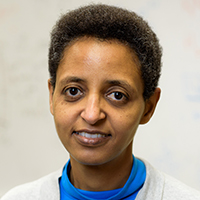
Sossina M. Haile, Northwestern University
Sossina M. Haile is the Walter P. Murphy Professor of Materials Science and Engineering at Northwestern University, a position she assumed in 2015 after serving 18 years on the faculty at the California Institute of Technology. She earned her PhD degree in Materials Science and Engineering from the Massachusetts Institute of Technology in 1992. Haile’s research broadly encompasses materials, especially oxides, for sustainable electrochemical energy technologies. Amongst her many awards, in 2008 Haile received an American Competitiveness and Innovation Fellowship from the U.S. National Science Foundation, in 2010 the Chemical Pioneer Award of the American Institute of Chemists, in 2012 the International Ceramics Prize by the World Academy of Ceramics, and in 2020 the Turnbull Award of the Materials Research Society. She is a fellow of the Materials Research Society, the American Ceramics Society, the African Academy of Sciences, and the Ethiopian Academy of Sciences, and serves on the editorial boards of Annual Review of Materials Research, Joule, and MRS Energy and Sustainability.

Prashant V. Kamat, University of Notre Dame
Prashant V. Kamat is a Rev. John A. Zahm, C.S.C., Professor of Science in the Department of Chemistry and Biochemistry and Radiation Laboratory at the University of Notre Dame. He is also a Concurrent Professor in the Department of Chemical and Biomolecular Engineering. Kamat has for more than three decades worked to build bridges between physical chemistry and material science to develop advanced nanomaterials that promise cleaner and more efficient light energy conversion. He has published more than 500 scientific papers that have been well recognized by the scientific community Thomson-Reuters has featured him as one of the most cited researchers each year since 2014 (2014 -2020). He is a fellow of the Electrochemical Society, American Chemical Society and AAAS. He is also a “Pravasi Fellow” of the Indian National Academy of Sciences. He is currently serving as the Editor-in-Chief of ACS Energy Letters.
Speakers and Panelists

Joseph Berry, National Renewable Energy Laboratory
Joseph Berry is a Senior Research Fellow at the National Renewable Energy Laboratory (NREL) working on halide perovskite solar cells. His efforts at NREL emphasize relating basic interfacial properties to relevant device level behaviors in traditional and novel semiconductor heterostructures including oxides, organics and most recently hybrid semiconductors. He is also a principal investigator on the NREL lead Department of Energy, Solar Energy Technology Offices “Advanced Perovskite Cells and Modules” program as well as being the director of the US-Manufacturing of Advanced Perovskites (US-MAP) Consortium and a Fellow at RASEI a joint energy institute between the University Colorado Boulder and NREL.
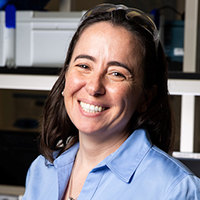
Mariana Bertoni, Arizona State University
Mariana Bertoni is the Fulton Energy and Materials Professor at Arizona State University and an associate professor in the School of Electrical, Computer and Energy Engineering. She joined ASU’s faculty after holding senior scientist positions at two startup companies in the photovoltaic industry and a postdoctoral fellowship at the Massachusetts Institute of Technology. Bertoni received her PhD degree from Northwestern University in Materials Science and Engineering in 2007 and her degree in Chemical Engineering from the Instituto Tecnológico de Buenos Aires. She is a former Fulbright Scholar and a Marie Curie Fellow. In 2016, she was named Outstanding Assistant Professor in the Fulton Schools of Engineering and in 2017 was invited to the National Academy of Engineering U.S. Frontiers of Engineering as one of the nation’s outstanding young engineers. In 2018, she won the NAE’s Grainger Foundation Frontiers of Engineering Award for Advancement of Interdisciplinary Research, received the 2018-2019 Joseph Palais distinguished faculty award and the 2020-2021 Fulton Entrepreneurial Professor Fellowship. Her research aims to understand how intrinsic and extrinsic defects affect the electrical and optical properties of energy materials and accordingly engineer the processing steps that will maximize performance.
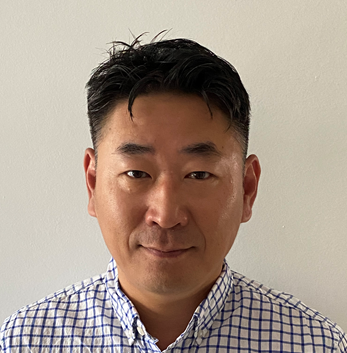
Hyun Sik Chae, Samsung Electronics
Hyun Sik Chae joined Samsung Electronics in 2014 and is currently working as a manager at SAIT (Samsung Advanced Institute of Technology)-America open innovation team, Samsung Electronics. One of his current roles and activities under display/optoelectronic technologies includes identifying emerging new display technologies and business/market trends and creating a partnership/collaboration opportunity with academia and industry partners. Prior to joining Samsung, he worked as a senior researcher in Nitto Denko Technical (NDT) Corporation in various R&D areas, including nano materials and with a special emphasis on organic light emitting diodes (OLED) for display and lighting applications. He received his PhD degree in chemistry from University of California, San Diego in 2004.
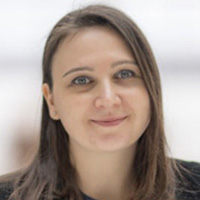
Diana De Porcellinis, Nel Hydrogen
Diana De Porcellinis is the Project Manager for R&D Contracts at Nel Hydrogen. She manages multiple externally and internally funded research projects with interdisciplinary research groups around the world. She leads multiple collaborations with academic and industrial partners and her research portfolio focuses on the development of Anion Exchange Membrane electrolyzers and the optimization of Proton Exchange Membrane electrolyzer components. De Porcellinis was originally trained as an Aerospace Engineer and has further specialized in the development of sustainable renewable energy alternatives with a Masters in Chemical Engineering and a PhD degree in Materials for Health, Environment and Energy. She holds degrees from the most prestigious Italian universities and was funded as a junior scholar by the Italian government throughout all her carrier as graduate researcher. Before joining Nel Hydrogen in 2020, she helped develop new organic redox flow battery technologies with Professor Michael Aziz at the John A. Paulson School of Engineering and Applied Sciences at Harvard University as a postdoctoral fellow. De Porcellinis’ background spans from polymer membranes to fuel cells, redox flow batteries, and long-duration energy storage systems. In 2015, she received the Reaxys Italian Chemical Society Young Researcher Award in Material Science, industrial and inorganic Chemistry.
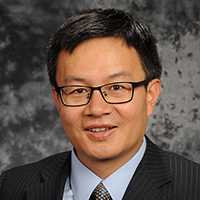
Dong Ding, Idaho National Laboratory
Dong Ding is a senior staff engineer/scientist in the directorate of Energy and Environmental Science & Technology at Idaho National Laboratory. He is a principal investigator for multi-projects including direct funded and lab directed research and development. Ding is a technical lead and steering committee member of HydroGEN of Energy Materials Network (EMN) and H2NEW under the DOE-Energy Efficiency and Renewable Energy (EERE)-Hydrogen and Fuel Cell Technology Office. Ding is an executive committee member for High-Temperature Energy, Materials, and Processes (H-TEMP) Division of the Electrochemical Society (ECS). He served as an editorial advisory board member for Journal of Power Sources Advances, a guest editor for Frontier in Materials, Frontier in Chemistry, Journal of Physics: Energy and Journal of Materials Research. He was the winner for Leadership Award for the EES&T of INL in 2021, the recipient for the Asian American Most Promising Engineering of the Year in 2020, and for Federal Laboratory Consortium (FLC) Far West Awards in Outstanding Technology Development in 2019. Ding holds faculty positions at University of Louisiana at Lafayette, University of South Carolina, New Mexico State University, and University of Idaho. Ding received his doctorate in material science at the University of Science & Technology of China (USTC), where he also earned a bachelor’s degree in materials chemistry. He holds 4 US patent and 15 patent applications.

Stephen Forrest, University of Michigan
Stephen Forrest received his BA degree in physics from the University of California, and his MS and PhD degrees in physics from the University of Michigan. In 1985, Forrest joined USC and in 1992, moved to Princeton University. In 2006, he rejoined the University of Michigan as Vice President for Research, where he is the Peter A. Franken Distinguished University Professor. A Fellow of the APS, IEEE and OSA and a member of the National Academy of Engineering, the National Academy of Sciences, the American Academy of Arts and Sciences, and the National Academy of Inventors, he has received numerous awards and medals for his invention of phosphorescent OLEDs, innovations in organic LEDs, organic thin films and advances in photodetectors for optical communications. He is co-founder or founding participant in several companies, including Sensors Unlimited, Epitaxx, Inc., NanoFlex Power Corp. (OTC: OPVS), Universal Display Corp. (NASDAQ: OLED) and Apogee Photonics, Inc., and is on the Growth Technology Advisory Board of Applied Materials. He has served on the Board of Governors of the Technion – Israel Institute of Technology where he is a Distinguished Visiting Professor of Electrical Engineering. He received an honorary doctorate from the Technion and the Henry Russel Lectureship at the University of Michigan. His first book, Organic Electronics: Foundations to applications, was published in September 2020.

Andrew Gewirth, University of Illinois at Urbana-Champaign
Andrew A. Gewirth received his AB from Princeton University in 1981 and his PhD degree from Stanford University in 1987. He joined the Illinois faculty in 1988 after postdoctoral work at the University of Texas, Austin. A former Director of the School of Chemical Sciences at the University of Illinois, Gewirth has received a number of awards, among them a Presidential Young Investigator Award and the Department of Energy Outstanding Accomplishment Award in Materials Chemistry. His work addresses chemistry at interfaces, especially the solid-liquid interface in studies relevant to fuel cells, batteries, and other energy related devices. Gewirth uses advanced characterization techniques to examine the mechanism of interfacial electrochemical reactions, and uses the resultant understanding to design new materials and catalysts. He has authored over 280 papers, delivered over 200 invited talks, organized several conferences, chaired a US Department of Energy panel examining the future of electrical energy storage devices, and served as the University of Illinois lead for the Center for Electrical Energy Storage EFRC.
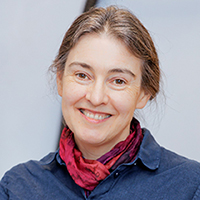
Clare P. Grey, Cambridge University
Clare P. Grey, FRS is the Geoffrey Moorhouse-Gibson Professor of Chemistry at Cambridge University and a Fellow of Pembroke College Cambridge. She holds a Royal Society (RS) Professorship. She received a BA and PhD degree (1991) in Chemistry from Oxford University. After post-doctoral fellowships in the Netherlands and at DuPont CR&D, she joined the faculty at Stony Brook University (SBU) in 1994. She moved to Cambridge in 2009, maintaining an adjunct position at SBU. She was the founding director of the Northeastern Chemical Energy Storage Center, a Department of Energy, Energy Frontier Research Center. She is currently the director of the EPSRC Centre for Advanced Materials for Integrated Energy Systems (CAM-IES) and an Expert Panel member of the Faraday Institution. Recent honours/awards include the RSC John Goodenough Award (2019), the Richard R. Ernst Prize in Magnetic Resonance (2020), the RS Hughes Award (2020)and the Körber Award (2021) for her contributions to the optimization of batteries using NMR spectroscopy. She is a foreign member of the American Academy of Arts and Sciences. Her current research interests include the use of solid-state NMR and diffraction-based methods to determine structure-function relationships in materials for energy storage (batteries and supercapacitors), conversion (fuel cells) and carbon capture. She is a cofounder of the company Nyobolt, which seeks to develop batteries for fast charge applications.
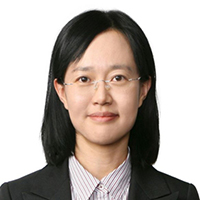
UInjoo Jang, Samsung Electronics
Eunjoo Jang is a Fellow at Samsung Advanced Institute of Technology (SAIT), Samsung Electronics. She received her PhD degree from the chemical engineering department at Pohang University of Science and Technology (POSTECH) in 1988 and did her postdoc at the University of Ottawa. She joined Samsung Electronics in 2000 and has been developing quantum dot materials and optoelectronic devices since 2001.
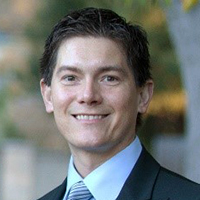
Thomas Francisco Jaramillo, Stanford University
Thomas Francisco Jaramillo is an associate professor of chemical engineering at Stanford University and of Photon Science at SLAC National Accelerator Laboratory. He serves as Director of the SUNCAT Center for Interface Science and Catalysis, a joint partnership between Stanford and SLAC. His research efforts are aimed at developing catalyst materials and new processes to improve sustainability in the energy and chemical sectors. Jaramillo has authored over 200 publications and has earned a number of honors and awards for his efforts. Honors include the Paul H. Emmett Award in Fundamental Catalysis (2021) from the North American Catalysis Society, the Resonate Award (2014) from the Resnick Institute, the Presidential Early Career Award for Scientists & Engineers (PECASE, 2011), the U.S. Dept. of Energy Hydrogen and Fuel Cell Program Research & Development Award (2011), the National Science Foundation (NSF) CAREER Award (2011), and the Mohr-Davidow Ventures (MDV) Innovator Award (2009). He earned a BS degree in chemical engineering at Stanford University and MS and PhD degrees in chemical engineering at the University of California, Santa Barbara. He then pursued post-doctoral research as the Hans Christian Ørsted Postdoctoral Fellow at the Technical University of Denmark, Department of Physics, prior to joining the Stanford faculty.

Ru-Shi Liu, National Taiwan University
Ru-Shi Liu received his bachelor's degree in chemistry from Soochow University and his master's degree in nuclear science from the National Tsing Hua University. He obtained PhD degrees in Chemistry from National Tsing Hua University and the University of Cambridge. At Materials Research Laboratories at Industrial Technology Research Institute, he held positions as an Associate Researcher, Research Scientist, Senior Research Scientist, and Research Manager. He is now a Distinguished Professor at the Department of Chemistry of the National Taiwan University. Liu has received many accolades including: Excellent Young Person Prize (1989), Excellent Inventor Award (Argentine Medal) (1995), Excellent Young Chemist Award (1998), the Y. Z. Hsu Scientific Paper Award (2011), the Ministry of Science and Technology Awards for distinguished research (2013, 2018), the Distinguished Award for Novel and Synthesis by IUPAC and NMS, the Chung-Shang Academic Paper Award, “Highly Cited Researchers” by Clarivate Analytics (2018, 2019), the Hou Chin-Tui Award (2018), Y. Z. Hsu Chair Professor Award (2019), the TECO Award (2019), the Academic Award of the Ministry of Education and the Academic Achievement Award of the Chemical Society (2020), and the FutureTech Award from the Ministry of Science and Technology.
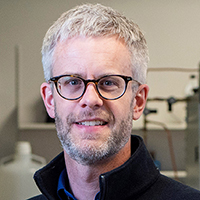
Mike McGehee, University of Colorado Boulder
Mike McGehee is a professor in the Chemical and Biological Engineering Department at the University of Colorado Boulder. He is the Associate Director of the Materials Science and Engineering Program and has a joint appointment at the National Renewable Energy Lab. He is an advisor to Swift Solar, Next Energy and Sinovia. He is a cofounder and the Chief Scientist of Tynt Technologies, a company that is commercializing dynamic windows based on reversible metal electrodeposition. McGehee was a professor in the Materials Science and Engineering Department at Stanford University for 18 years and a Senior Fellow of the Precourt Institute for Energy. He received his undergraduate degree in physics from Princeton University and his PhD degree in materials science from the University of California at Santa Barbara.
Y. Shirley Meng, University of California San Diego
Y. Shirley Meng received her PhD degree in Advance Materials for Micro & Nano Systems from the Singapore-MIT Alliance in 2005. She currently holds the Zable Chair Professor in Energy Technologies and professor in Materials Science & NanoEngineering at University of California San Diego. Meng is the principal investigator of the research group - Laboratory for Energy Storage and Conversion (LESC). She is the founding Director of Sustainable Power and Energy Center (SPEC). In 2020, she was named as the inaugural director of Institute for Materials Discovery and Design (IMDD). Meng has received several prestigious awards, including Michael Faraday Medal of Royal Chemical Society (2020), International Battery Association Battery IBA Research Award (2019), Blavatnik Awards for Young Scientists Finalist (2018 & 2019), IUMRS-Singapore Young Scientist Research Award (2017), C.W. Tobias Young Investigator Award of the Electrochemical Society (2016) and NSF CAREER Award (2011). She is an elected Fellow of Electrochemical Society and Fellow of Materials Research Society. She is the author and co-author of more than 240 peer-reviewed journal articles, two book chapters and five issued patents. Meng is the Editor-in-Chief for MRS Energy & Sustainability and the co-founder of Unigrid LLC.
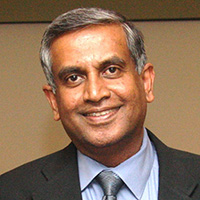
Nadarajah Narendran, Rensselaer Polytechnic Institute
Nadarajah Narendran is a professor and director of research at the Lighting Research Center at Rensselaer Polytechnic Institute in Troy, New York. He is well known for his pioneering research in the field of solid-state lighting, including LED performance improvement through novel packaging, development of accelerated life-testing methods, and the use of LEDs in high-value lighting applications. His current research focuses on LED lighting system life and 3D printing of LED lighting fixtures and components. Narendran is a Fellow of the Illuminating Engineering Society, a Fellow of SPIE, and a member of the committee on the assessment of solid-state lighting for the National Research Council of the National Academies.
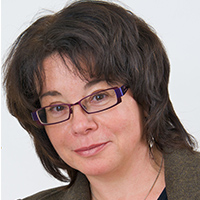
Linda Nazar, University of Waterloo
Linda Nazar received her BS degree in chemistry from the University of British Columbia, her PhD degree in chemistry from the University of Toronto, and was a postdoctoral fellow at the Exxon Research Labs. She joined the faculty at the University of Waterloo, Ontario, Canada where she is a Chemistry professor, Senior Canada Research Chair in Solid State Energy Materials and Distinguished Research Professor. Nazar is known for her research on electrochemical energy storage with topics that span Li-ion batteries, “beyond Li-ion”, and solid state electrolytes/batteries. She is on the Web of Science’s Highly Cited Researcher Lists from 2014-2021, and a Fellow of the Royal Society. Nazar is an Officer of the Order of Canada, and the recipient of several international awards including the MRS Medal, the Battery Research Award from the Electrochemical Society, the August-Wilhem von Hofman Lectureship (Germany Chemical Society), the International Battery Association award and the International Automotive Lithium Battery award. She has been a member of the Joint Centre for Energy Storage Research since 2013. She has spent sabbaticals at UCLA; the Jean Rouxel Institute of Materials and the CNRS in France; she was a Moore Scholar at the California Institute of Technology and is now a Visiting Liebig Professor at the Justus Liebig University in Giessen, Germany.
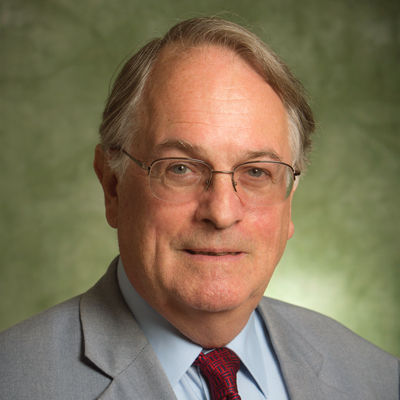
M. Stanley Whittingham, Binghamton University
M. Stanley Whittingham is a SUNY distinguished professor of chemistry and materials science and engineering at Binghamton and the 2019 Chemistry Nobel Laureate. He received his BA and PhD degrees in chemistry from Oxford University, where he is an honorary Fellow of New College. He has been active in Li-batteries since 1971 when he won the Young Author Award of the Electrochemical Society for his work on beta-alumina. In 1972, he joined Exxon and discovered the role of intercalation in battery reactions, which resulted in the first commercial lithium rechargeable batteries that were built by Exxon Enterprises. In 1988 he returned to academia at SUNY Binghamton to initiate a program in materials chemistry. In 2018 he was elected a member of the National Academy of Engineering and received the Turnbull Award from MRS. He is a Fellow of the Royal Society, of MRS, ECS, ISE and ICDD.
Thank you to our Sponsor

